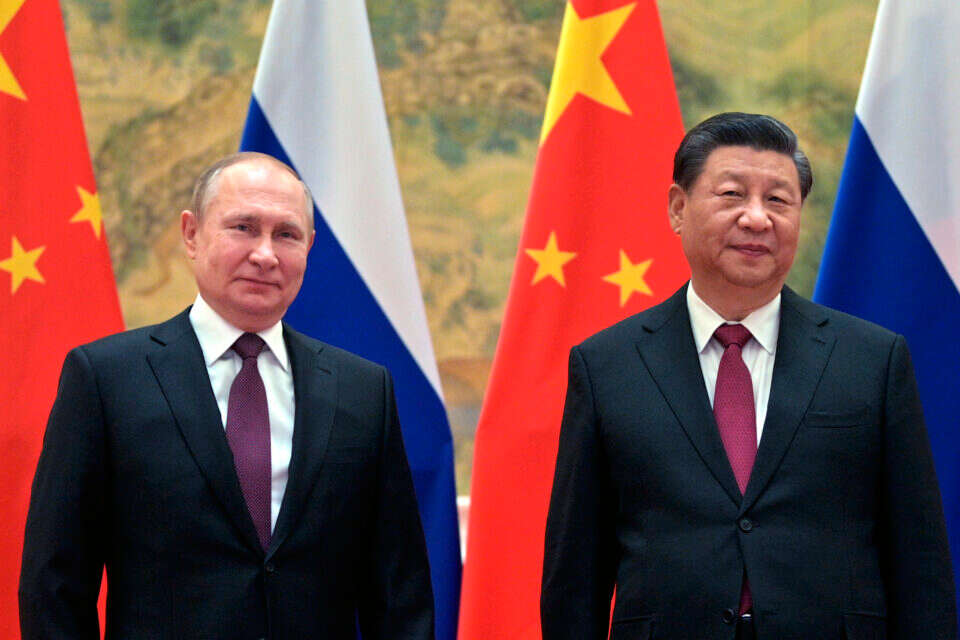The crisis in Ukraine, the worst between Moscow and Washington in three decades, embodies the potential for far-reaching effects on the world order that has shaped the international arena since the collapse of the Soviet Union. At the root of the crisis is President Putin's aspiration to turn back the circles of history and shape a new security architecture in Europe, especially when it comes to expanding NATO to the east and placing strategic weapons in Eastern European countries and near its borders.
About 200 years ago, Karl von Clausewitz, one of the forefathers of modern martial arts, coined the saying that "war is nothing but a continuation of policy by other means."
There seems to be no more apt statement than this to characterize Putin's conduct since he came to power about two decades ago.
For him, the use of force is not an end in itself but a means of achieving Russia's strategic goals at home and abroad.
In Putin's view, in recent decades there has been a gradual process of weakening Russia and eroding its international standing, in a way that poses a real threat to its national security.
Russian experiment with nuclear missiles, at the height of tensions with Ukraine // Photo: Reuters
Along with being a nuclear power, Russia's two main cards to illustrate its status as a power and the West's consideration of its interests are energy resources and military capabilities.
Putin has repeatedly shown his willingness to pull them off as a joker through which the picture can be reversed and the balance of power changed.
The invasion of Georgia in 2008, the takeover of the Crimean peninsula in 2014, the use of force in Syria since 2015, and the sending of forces to Kazakhstan earlier this year, along with assassination attempts by domestic opposition elements and threats to reduce gas supplies to "unruly" countries, are tangible manifestations.
In this spirit, one can also see Putin's dealings with the West and Ukraine in the current crisis - creating an option for a military, tangible and immediate threat.
The pilgrimage of Western leaders to Russia is in his view, at least for the time being, proof of his worldview that the West would be right to consider Russian interests only under threats.
One of the most significant consequences of the crisis is the crystallization of two opposing axes - one axis Russia and China and the other the United States and its allies in Europe and Asia. On world order led by the United States.
Ukrainian President Zlansky meets with Prime Minister Britain Johnson during a meeting of the two in early February 2022, Photo: AP
It seems that Moscow and Beijing have made a strategic decision to move aside their rivalry and historic competition to promote and present a united front against the US, in order to shape a new world order and curb what they perceive as Washington's growing involvement in their "backyard," Permit to promote liberal ideas and military cooperation.
On the other hand, President Biden's efforts to form a unified Western front against Russia stand out, which will be reflected in its price-raising by imposing joint economic sanctions on it and reviving the relevance of the NATO alliance. Areas - Competition to deepen influence in various regions around the world (Taiwan the next challenge?) Including in the Middle East;
Crisis management;
Promoting decisions in various international frameworks and conventions;
Commodity and energy prices, and more.
These developments create opportunities and challenges for Israel alike.
On the one hand, a return to an era of modern-day cold war between two major blocs could overshadow Israel's ties with Russia and China, and in a worsening scenario even radiate security coordination with Russia and freedom of action in Syria.
On the other hand, it is likely that in such a reality, and despite the desire to direct resources to other arenas (Asia and Europe), the US will have to expand its involvement in the Middle East due to being a target for competition between powers and its geo-strategic importance. Added to the special ties between the two countries, both in the bilateral dimension and vis-à-vis the Sunni states.
Dr. (Lt. Col.) Shai Har-Zvi is a senior researcher at the Institute for Policy and Strategy (IPS) at Reichman University. Former CEO of the Ministry of Strategic Affairs.
Were we wrong?
Fixed!
If you found an error in the article, we'll be happy for you to share it with us

